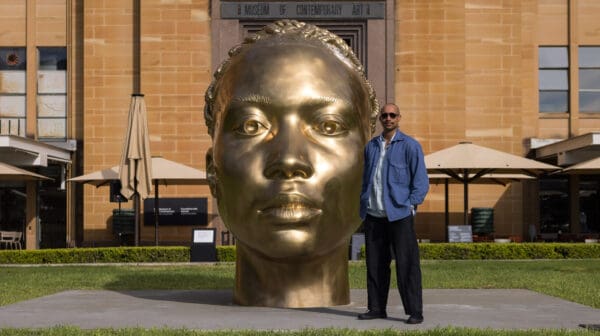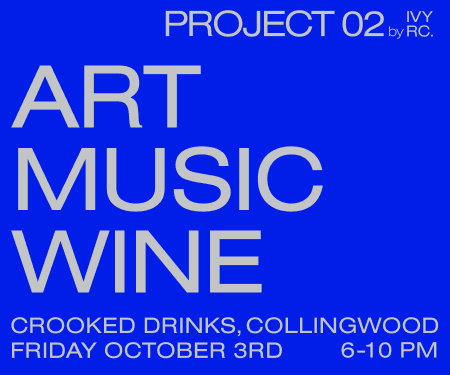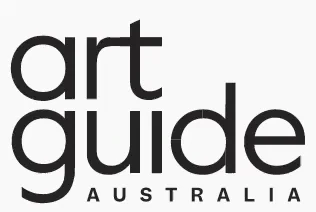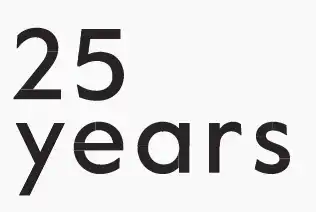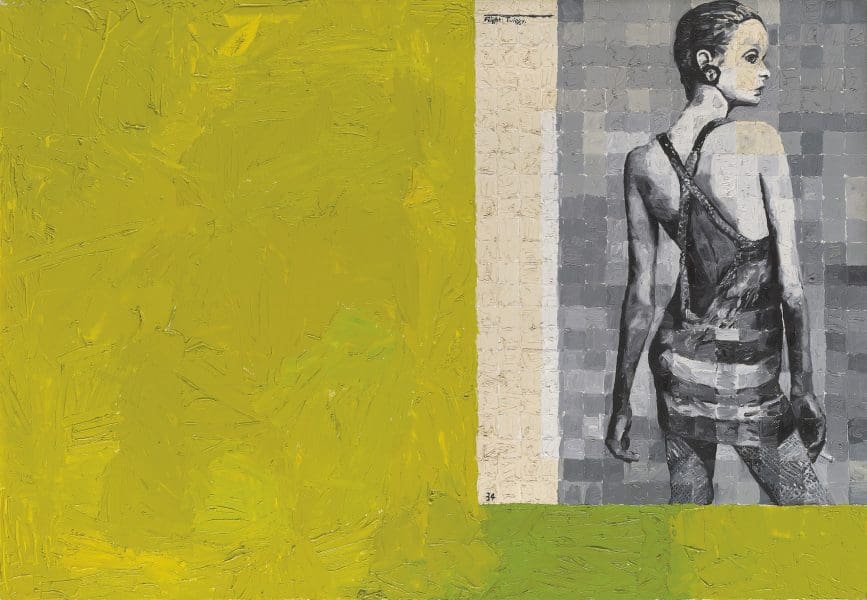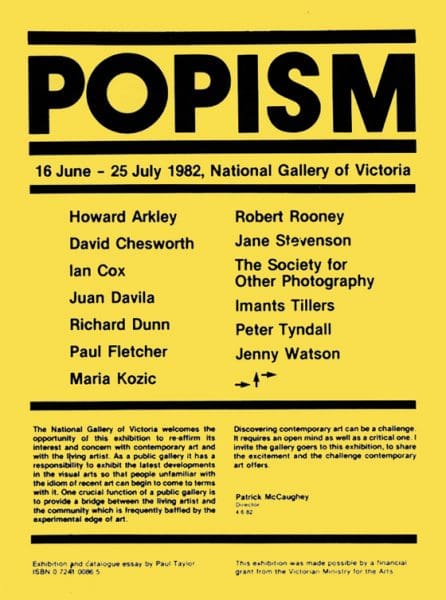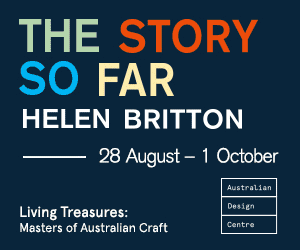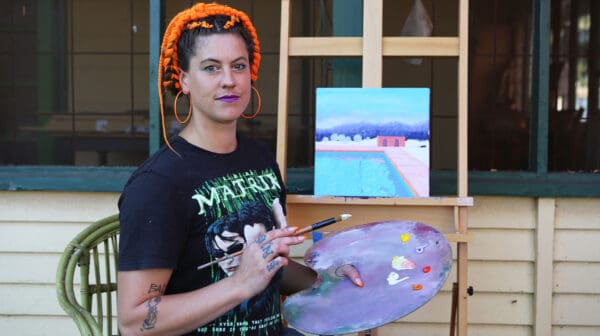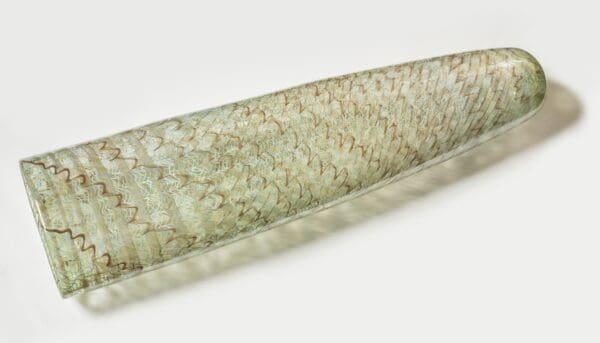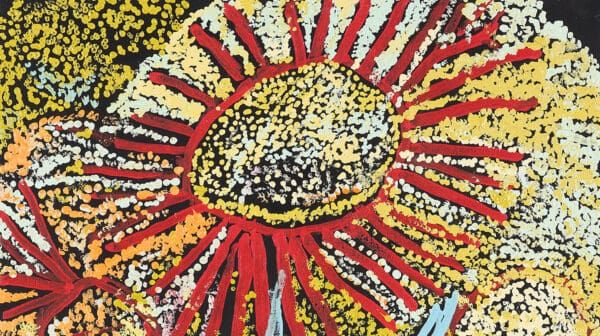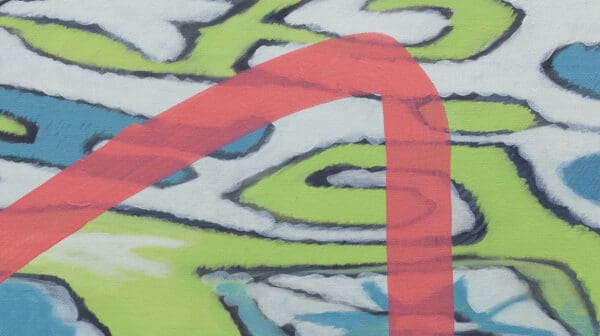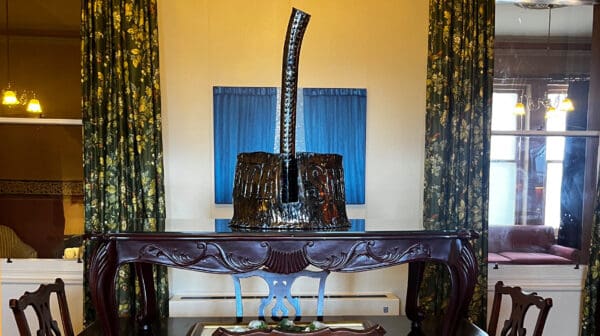Australian Centre for Contemporary Art (ACCA)‘s lecture series ‘Defining Moments: Australian Exhibition Histories 1969–1999‘ examines pivotal movements that shaped Australian art. Now in the second year of a two-year project, the series will be broadcast online, as free videos and podcasts, from Monday 25 May. In the first lecture for 2020 writer and researcher Judy Annear discusses the 1982 National Gallery of Victoria exhibition Popism.
Annear is a fitting choice for delivering this lecture. In the 1970s and 1980s she was a friend and collaborator of the late Paul Taylor (1957-1992), who was a former editor of Art & Text magazine and the curator of Popism. Nearly 40 years after Popism opened, to much criticism – to the amusement of a 24-year old Taylor – Annear says the exhibition, and what Taylor wanted to achieve with it, remains highly relevant.
Taylor initiated the exhibition – with the support of NGV’s then director, Patrick McCaughey – to showcase the work of artists in his generation at an institutional level, to challenge the attitudes of hierarchical institutions and of the broader public. He selected 14 artists of diverse backgrounds and ages working in different mediums, who, together, captured the attitudes and concerns of the time: Howard Arkley, David Chesworth, Ian Cox, Juan Davila, Richard Dunn, Paul Fletcher, Maria Kozic, Robert Rooney, Jane Stevenson, The Society for Other Photography, Imants TIllers, Peter Tyndall, Jenny Watson and Tsk Tsk Tsk.
“Popism was a very open-ended project about the nature of the art world,” Annear says. The breadth of the mediums and works in the exhibition – from painting to Super-8 film, performance and more – reflects Taylor’s skill in bringing together things that may not, at surface level, appear to sit well together.
Annear says we all have an “inevitable desire to understand things succinctly,” but it’s not always possible to do so. Popism – and contemporary art practice more broadly – shows this. It’s this attitude that Taylor tried to address, and this is also why the exhibition was not received well in mainstream media at the time.
One thing that loosely brings these artists together, which Taylor noted and harnessed, is photography – or rather how these artists used and borrowed from photography and image reproduction in their practice. Although they were not photographers, their practice was of the photographic and “dependent on the photographic in all sorts of ways,” says Annear.
Their use of imagery and reproduction does recall pop art of the 1960s, which in itself was borne out of a retaliation against ‘traditional’ art. However, 25 years later, pop art had become part of the canon. And once something is in the canon, it becomes mainstream.
In the 1970s and 1980s, these artists had no desire to be mainstream.
What they wanted instead, was for audiences to “meet them halfway and be active – not passive – in their interpretations,” Annear says.
And this brings us back to 2020, where on the surface, institutions are no longer seen to be particularly ‘traditional.’ After all, video work, for example, can now be the main event. But are contemporary audiences being encouraged to meet artists halfway, and engage with art critically and analytically, rather than superficially?
Annear hopes her lecture encourages people to think about how they react to viewing art or making art. “I’m just a vehicle for this set of ideas. The person who should be giving this lecture is Paul Taylor, not me, but of course he’s no longer with us. So, I’m just a vehicle for a rather imperfect presentation of what it was like [at the time].”
Defining Moments: Popism at the National Gallery of Victoria 1982 will be released at 6pm on Monday 25 May 2020.
Subscribe to ACCA podcasts and see the entire 2020 Defining Moments program here.
The 2019 series of Defining Moments lectures can be found here.
Please note that due to Covid-19 restrictions, ACCA is temporarily closed. Their extensive online program can be accessed here.
